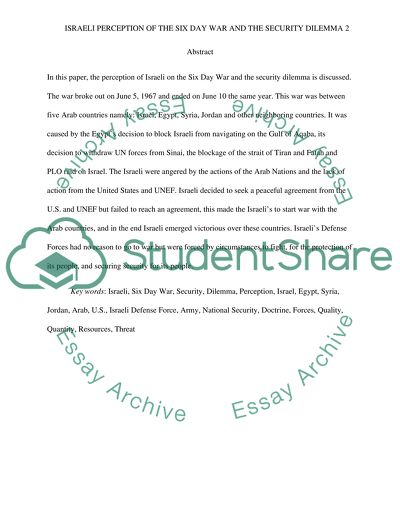Cite this document
(“Israeli perception on the six day war and the security dilemma Research Paper”, n.d.)
Retrieved from https://studentshare.org/history/1460413-israeli-perception-on-the-six-day-war-and-the
Retrieved from https://studentshare.org/history/1460413-israeli-perception-on-the-six-day-war-and-the
(Israeli Perception on the Six Day War and the Security Dilemma Research Paper)
https://studentshare.org/history/1460413-israeli-perception-on-the-six-day-war-and-the.
https://studentshare.org/history/1460413-israeli-perception-on-the-six-day-war-and-the.
“Israeli Perception on the Six Day War and the Security Dilemma Research Paper”, n.d. https://studentshare.org/history/1460413-israeli-perception-on-the-six-day-war-and-the.


